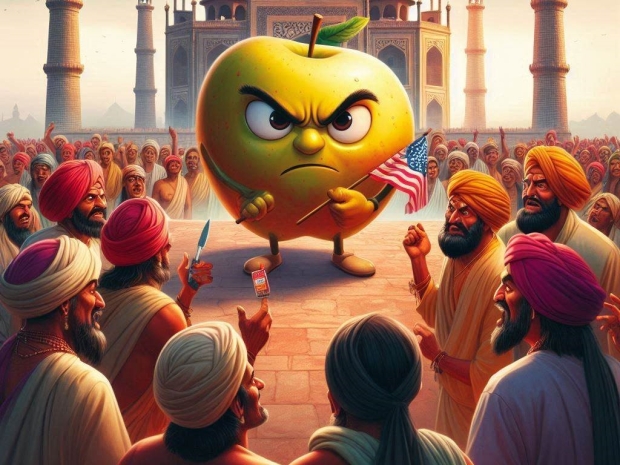The Competition Commission of India (CCI) has investigated Apple since 2021 for possibly abusing its dominant position in the app market by forcing developers to use its proprietary in-app purchase system. Apple has denied any wrongdoing, claiming it is a minor player in India, and is picked on by that big bully Google.
The CCI's investigations unit, in its 142-page report, which is not public but was seen by Reuters, stated that Apple wields "significant influence" over how digital products and services reach consumers, primarily through its iOS platform and App Store.
"Apple App Store is an unavoidable trading partner for app developers, and as a result, app developers have no choice but to adhere to Apple's unfair terms, including the mandatory use of Apple's proprietary billing and payment system," the CCI unit said in the June 24 report.
"From the perspective of app developers, the Apple iOS ecosystem is indispensable."
The Indian investigation report comes as Apple faces increased antitrust scrutiny in other regions. In June, European Union antitrust regulators said Apple breached the bloc's tech rules, which could result in a hefty fine for the iPhone maker. The company faces an investigation into new fees imposed on app developers.
In January, in response to a new EU law called the Digital Markets Act, Apple outlined plans to allow software developers to distribute their apps to users in the European Union outside of Apple's own App Store.
The CCI report is the most critical stage of the Indian investigation, and the watchdog's senior officials will now review it. Apple and other parties will be allowed to respond before a final decision is reached, which could include monetary fines and directives to change business practices.
A little-known, non-profit group first filed the Indian case called "Together We Fight Society," which argued Apple's in-app fee of up to 30 per cent cut hurts competition by raising costs for app developers and customers.
Later, a group of Indian startups, Alliance of Digital India Foundation, and Tinder-owner Match filed similar cases at the CCI against Apple, which were all heard together.
The CCI investigation team said in its report that Apple was permitting no third-party payment processor to provide services for in-app purchases. It added that in most cases, apps are also not allowed to include any external links that direct customers to other purchasing mechanisms, violating Indian competition laws.
Apple's iOS-powered about 3.5 per cent of 690 million smartphones in India as of mid-2024, with the rest using Android, according to Counterpoint Research, though it adds Apple's smartphone base in the country has become five times larger in the last five years. In its submissions to the CCI, Apple argued that its market share in India is "insignificant" at 0-5 per cent, while Google's is at 90 per cent The company also claimed that the in-app payment system allowed it to maintain and develop the safety of its App Store.
But the CCI said, "App stores are OS (operating system) specific and Apple's App Store is the sole App Store available for reaching iOS users."
"The payment policy of Apple adversely affects app developers, users, and other payment processors," it said. The CCI report showed it considered comments from many companies including Microsoft, Uber, and Amazon during its Apple investigation.
Google has also been scrutinised by the CCI for its in-app payments mechanism. In October 2022, the CCI imposed a $113 million fine on Google and said it must allow third-party billing and stop forcing developers to use its in-app payment system.
Google has challenged the decision.

